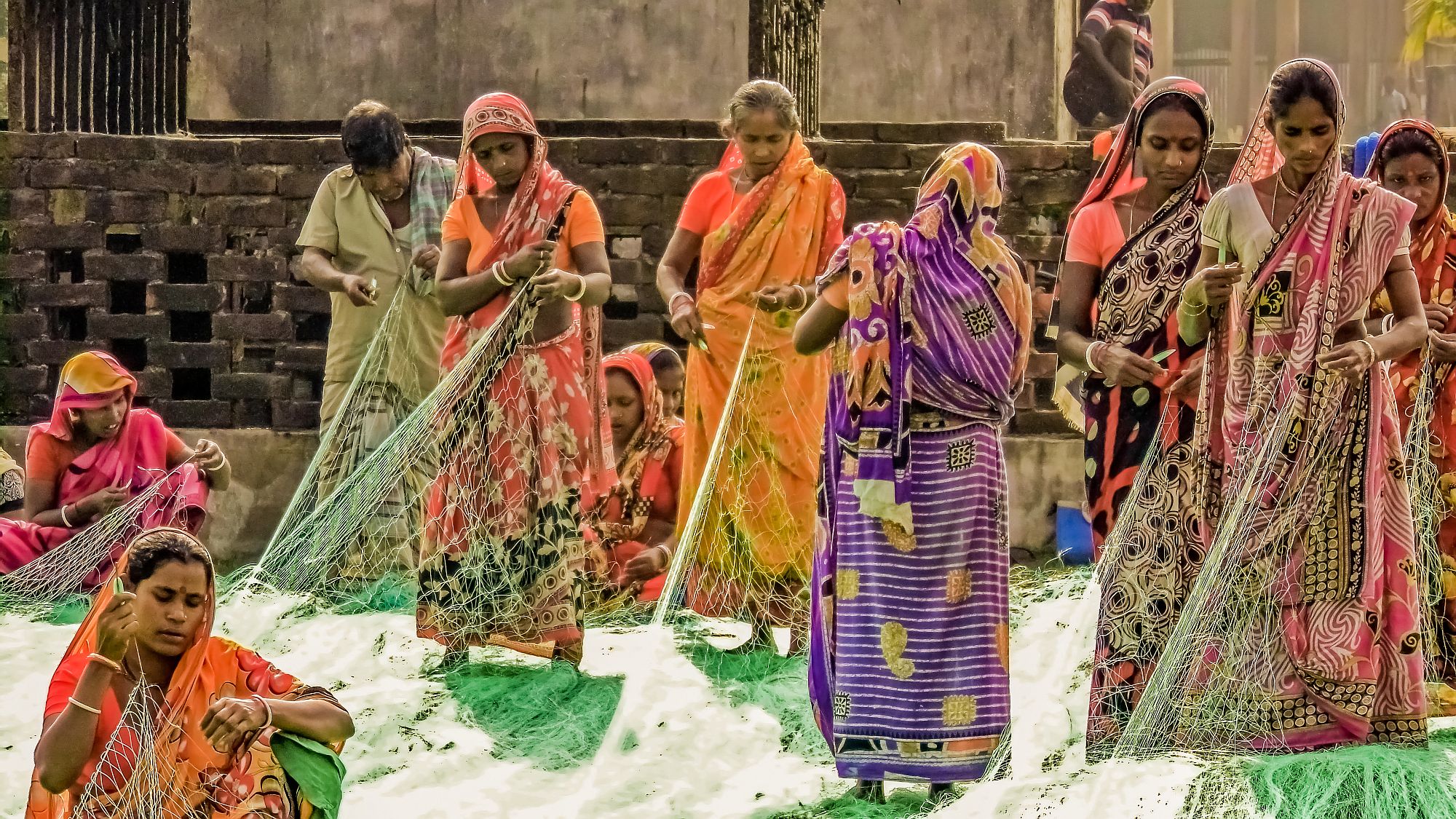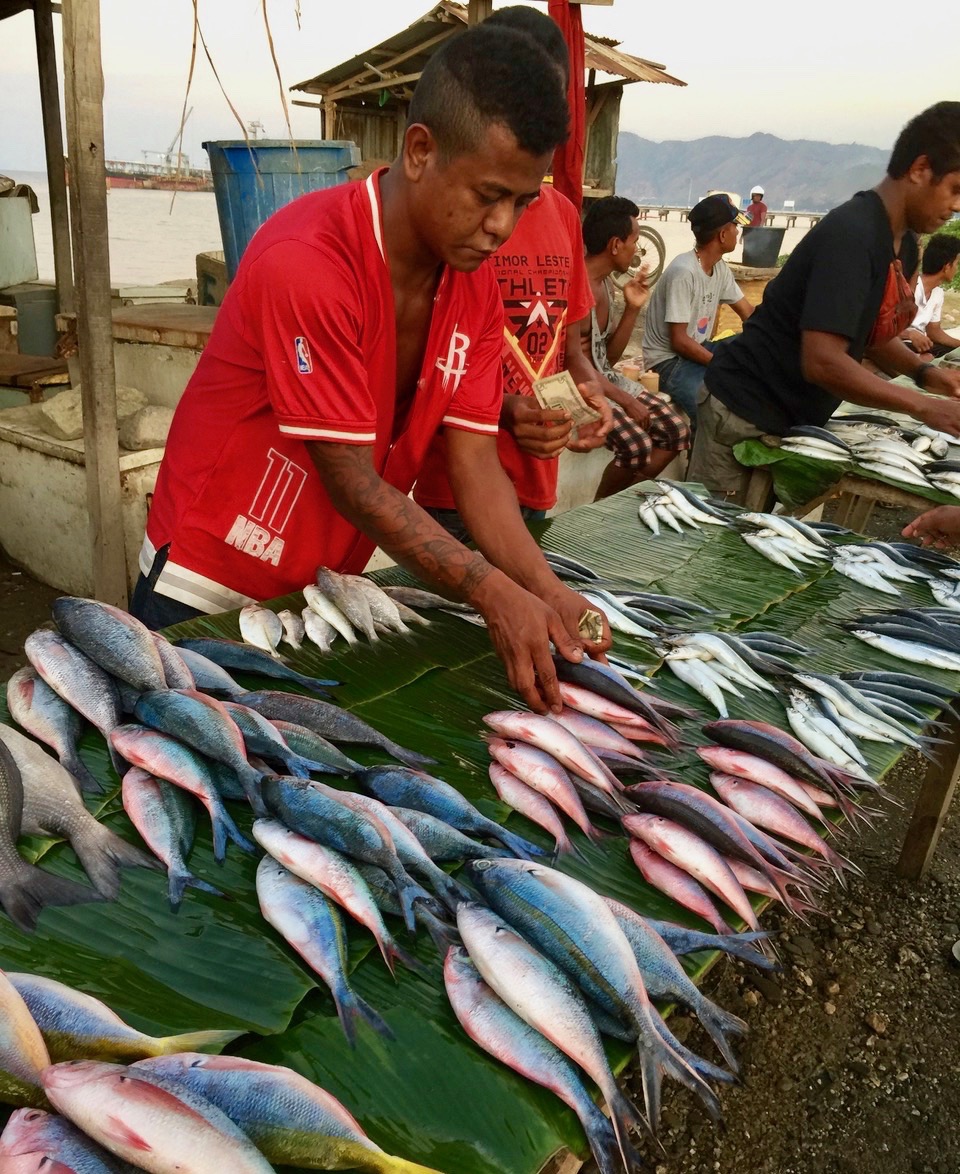Rising high on the national agenda
Sweden has increasingly recognized the challenges related to governance of the oceans. Life in the sea and the livelihoods depending on the vitality of the world’s oceans are concerns that appear high on the Swedish government’s list of priorities. In June 2017, Sweden and Fiji hosted the first implementation conference on SDG goal 14 that focuses on life below water. The aim was to raise the profile of ocean-related issues on the political agenda and create greater awareness about problems and opportunities that exist.
As part of Sweden´s ambition to take a leading role for governance of marine environments, SwedBio is strengthening and expanding its work on marine social-ecological systems, thanks to additional funding from the Swedish International Development Cooperation Agency (Sida) in 2018 and 2019. The new funding will enable SwedBio to build on existing projects as well as to seek new collaborations and partnerships that can contribute to more effective governance of marine environments and coastal social-ecological systems. A key goal is to enhance knowledge generation and dialogue between policymakers, civil society and scientists in order to develop fisheries and ocean policies that better account for the realities of marginalised coastal people living in poverty, and to help bridge between policy formulation and implementation.
Women and men share responsibilities in mending fishing nets in a fishing harbour in West Bengal, India
Integrating a marine focus across all of SwedBio’s focal areas
Existing partnerships and collaborations focusing on marine systems aim to ensure resilient and equitable utilisation of resources within Swedbio’s focal area “Livelihood, Food & Health”. With the new funding opportunity, marine and coastal issues will also be integrated in SwedBio’s other focal areas, including Cities and Biodiversity, Climate Change and Ecosystems, Biocultural Diversity, Values and Governance. This is in line with an integrated social-ecological systems approach and the 2030 Agenda, calling for a “source-to-sea” approach. A marine focus will be integrated into SwedBio’s ongoing work on climate change, to contribute to mitigation and adaptive capacity to existing and anticipated changes.
Goals underpinning SwedBio’s collaborative partnerships are to improve livelihoods, reduce poverty with an integrated gender equality focus and strengthen governance of marine social-ecological systems.
A small fish market in Dili, Timor Leste
Call for applications with a marine focus to SwedBio’s collaborative programme
Please note that the window for submissions to this call is now closed, new incoming applications will not be considered for the time being.
The following focal areas are especially relevant for SwedBio’s broadened marine focus, specific issues to guide applications have been identified:
LIVELIHOODS, FOOD AND HEALTH
Focus should be on the crucial role marine biodiversity and ecosystems play in sustaining livelihoods, food provision and bringing good nutritional health to people living in poverty. Key challenges should encompass how marine resources are increasingly being degraded and how this affects coastal people living in poverty who are already vulnerable. Inequalities, especially between genders, pose an additional challenge that needs to be considered.
The support within this focal area aims at fostering equitable and sustainable governance and management of social-ecological systems, in seascapes that sustain and promote improved livelihoods, food security and human health.
CITIES AND BIODIVERSITY
Emphasis in this area is on the challenges posed by rapidly urbanising city regions in developing countries and their effects on river deltas or coastlines. The focus should be on the direct and indirect impact of cities on marine biodiversity and coastal and marine ecosystems.
This focal area aims to improve local government’s capacity for local implementation of the Aichi Biodiversity Targets in cities across rapidly urbanizing developing countries.
BIOCULTURAL DIVERSITY
Support within this focal area relates to biocultural diversity, which captures the continuous co-evolution of biological and cultural diversity. It should deal with indigenous and local knowledge and practices that provide innovative ways of coping with changing coastal and marine environments.
The aim of the marine support within this focal area is to contribute to better governance and management of marine social-ecological systems and biocultural diversity, and to increase respect and recognition for indigenous and local knowledge contributions to biodiversity.
CLIMATE CHANGE AND ECOSYSTEM
Support within this focal area contributes to Nature-Based Solutions for improved climate resilience of coastal social-ecological systems.
It should foster equitable governance and ecosystem management for sustainable marine livelihoods, adaptation, mitigation and disaster risk reduction related to climate change, through analysis and measures related to resilience and social-ecological systems.
VALUES AND GOVERNANCE
Support within this focal area should focus on how policy and economic instruments can better capture and make visible the values and benefits of marine biodiversity and ecosystems. This could include how laws can be framed and implemented to support good governance and management of the biosphere, including marine social-ecological systems. Preferably, such support has a public participation component as a means to foster multilevel and adaptive governance, as well as social-ecological resilience.
The aim is to integrate values of ecosystems across government and society, and develop and implement policy, economic and legal instruments for equitable governance. At the same time using appropriate traditional and innovative approaches, including financing safeguards for social-ecological systems that are rich in biodiversity.
Further details
The marine work will be integrated in the ongoing SwedBio programme, composed of the focal areas:
- Thematic areas (Livelihoods, Food & Health, Cities & Biodiversity, Biocultural Diversity, Climate Change & Ecosystems, Values & Governance, Assessment & Indicators)
- Functional areas (Dialogues & Learning, Art & Culture, Communication & Training)
Within the programme, the following cross-cutting issues have been identified:
- Resilience perspectives
- Social-ecological systems rich in biodiversity
- Poverty alleviation and sustainable livelihoods
- Equity, human rights and democracy
- Gender analysis
- Endogenous development
For submission of project concept notes, please refer to SwedBio’s criteria for support and further information about SwedBio’s focal areas. Initial expressions of interest can preferably be submitted via email to swedbio@su.se in the form of short concept note (approx. 2 pages) with indicative budgets. The concept note shall be developed into a full proposal with corresponding budgets after receiving feedback from SwedBio. SwedBio may during the assessment process approve the proposal in principle, but still require some adjustments. SwedBio does not have a template for proposals, but the final approved proposal (project document) shall describe what is to be achieved, how the objectives will be achieved, and how the intervention will be monitored. It could include:
- (Brief) background description and problem analysis
- A clear overall objective
- Target group
- Clearly specified expected outcome/results (and activities)
- Monitoring method
- Description of participating partners
- Country-level plans (if applicable, mainly relevant for long-term projects with national partners)
- Risk analysis including mitigation measures for identified risks
- Gender analysis, addressing how (if) the project considers gender equality aspects
- A budget prepared in line with the SwedBio guidelines for budget and financial reporting
Screening and review of expressions of interest is conducted on a continuous basis, with the aim to identify projects as soon as possible and within the months of February and March 2018, to allow time for implementation of activities from 2018. This timeframe should be kept as reference by organizations wishing to express interest.
The implementation period for projects identified under this call are the years of 2018 and 2019.
The grant size for projects identified under this call ranges from small grants with minimum amount of approximately SEK 200,000 up to maximum approximately SEK 1 million per year.



 Hanna Wetterstrand
Hanna Wetterstrand